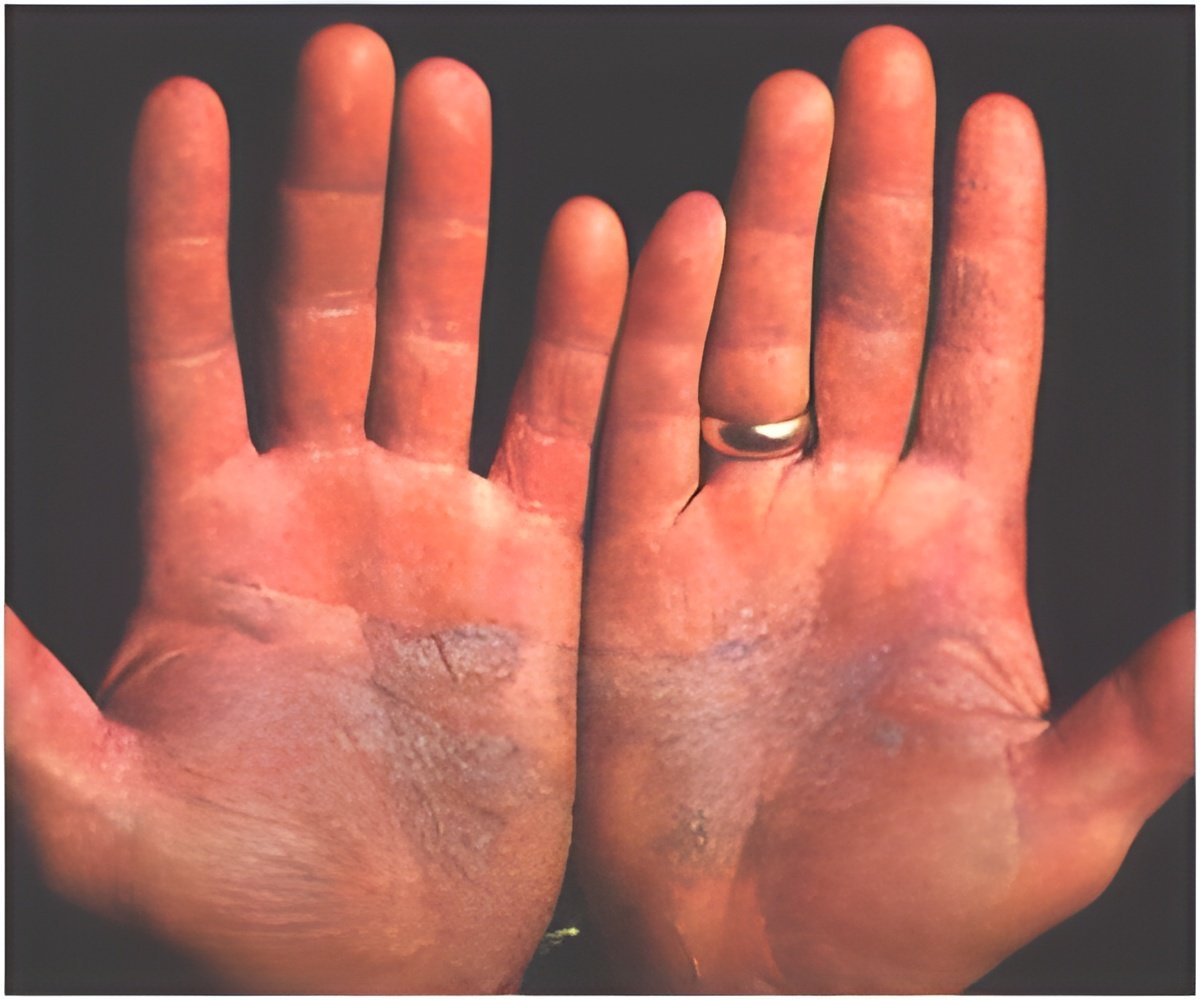Abnormal activation of cell death pathways previously believed to suppress inflammation may actually cause inflammatory skin diseases like psoriasis, found researchers.

Infected cells, cancerous cells, or those that are simply unnecessary to the body are instructed to die in a programmed process called apoptosis. Through this process, cells die without affecting or harming surrounding cells, and without mounting an immune response.
Mr Rickard said another recently discovered form of cell death, known as necroptosis, also instructed cells to die by a 'programmed' series of events, with a key difference. "Necroptosis occurs when something has gone wrong with the normal process of apoptosis," Mr Rickard said. "The necroptotic pathway signals that something sinister might be happening, alerting and recruiting key immune cells to the 'scene of the crime'."
Both types of cell death have been implicated in the development of immune disorders, Mr Rickard said. "Previous research has linked necroptosis - or inflammatory cell death - with inflammatory diseases such as psoriasis and, particularly, Crohn's disease."
In the study, the research team looked at how the loss of key molecules involved in either necroptosis or apoptosis affected inflammation and inflammatory disease development.
"We were surprised to discover that apoptosis was the culprit in the development of inflammatory skin disease, while more extensive, system-wide inflammation such as in the liver and spleen was driven by necroptosis," Mr Rickard said. "This was quite unexpected, because apoptosis is not normally associated with inflammation."
Advertisement
"This work has also provided us with clues about how existing medications for inflammatory diseases such as psoriasis work, suggesting their effectiveness could be related to their inhibition of apoptosis and necroptosis cell death pathways," he said.
Advertisement
Associate Professor Silke said there was still much to discover about necroptosis. "We are only just beginning to understand the complex cascade of signals involved in necroptosis," he said. "It is clear though that necroptosis is very important in our response to infection and disease."
"Scientists from the Walter and Eliza Hall Institute have had great success in unravelling the many complex signals in apoptosis and developing potential treatments based on these findings. A number of teams at the institute, including mine, are now turning their attention to this new cell death pathway, to better understand how it functions in normal and diseased cells. We hope to have the same success and see new treatments based on these fundamental scientific findings in the future," he said.
Source-Eurekalert















